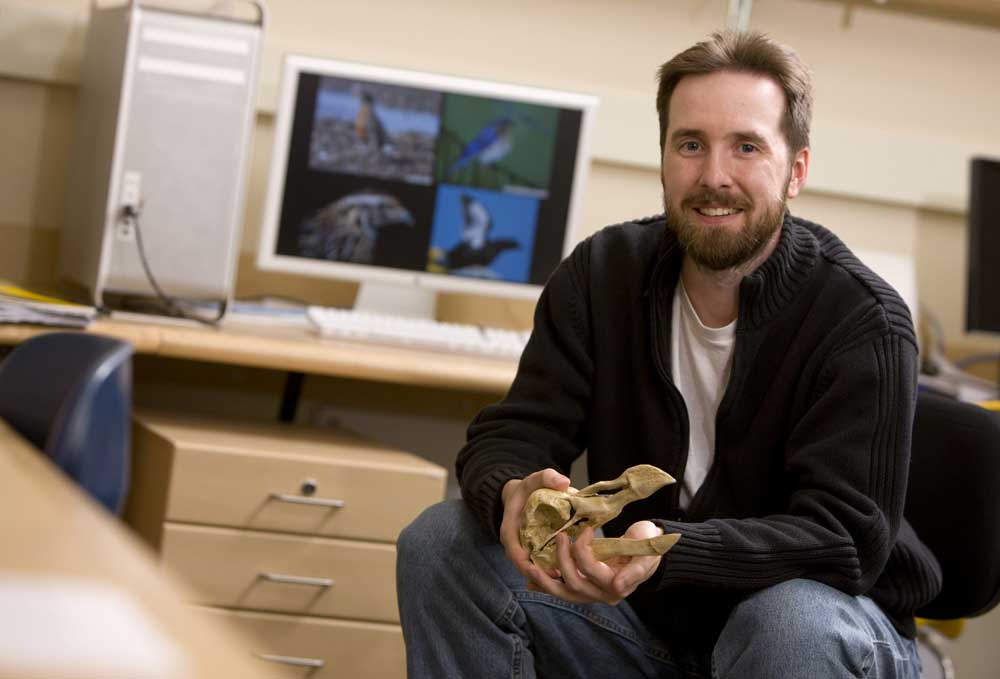With its mousy brown feathers and ample frame, the ruffed grouse wouldn't win any beauty contests. But for one neuroscientist, the Alberta species is a celebrity.
One of the University of Lethbridge's newest researchers in the Canadian Centre for Behavioural Neuroscience (CCBN), Dr. Andrew Iwaniuk, says the species is unique in the world. By beating its wings very quickly, the male creates a loud drumming sound to attract females.

"It's completely unique to them. There's no other grouse or chicken-like species in the world that has that behaviour," he says.
Iwaniuk, who earned his master's degree at the U of L, has chosen the ruffed grouse as a focal species for his research on brain differences across species. He's trying to understand why the brains of different animals evolve so distinctly and says the grouse's unique behaviour will provide information about how its brain evolved.
His research is supported by several funding bodies, including the Natural Sciences and Engineering Research Council of Canada (NSERC), which recently awarded him nearly $500,000.
Another branch of Iwaniuk's work explores the neurobehavioural impacts of organic pollutants, also through the lens of bird physiology. For this work, he's studying the common quail, which is more sensitive to pollutants than wild birds.
Supported by Alberta Ingenuity and the Alberta Heritage Fund, this work focuses on perfluorinated chemicals, which are contained in stain treatments and Teflon coatings and now circulate widely in the environment.
"A bit of an unknown with these chemicals is how they're affecting our bodies and potentially our brains and behaviours," he says. "The current theory is that these chemicals are upsetting the thyroid gland."
Iwaniuk, who did his PhD at Monash University in Melbourne, Australia, conducted research at the University of Alberta and the Smithsonian Institution's National Museum of Natural History in Washington, D.C., before returning to the U of L.
"The facilities here were better than the other places I was looking at and the funding was better, which offers me the opportunity to hire post-docs, students and research assistants," Iwaniuk says.
